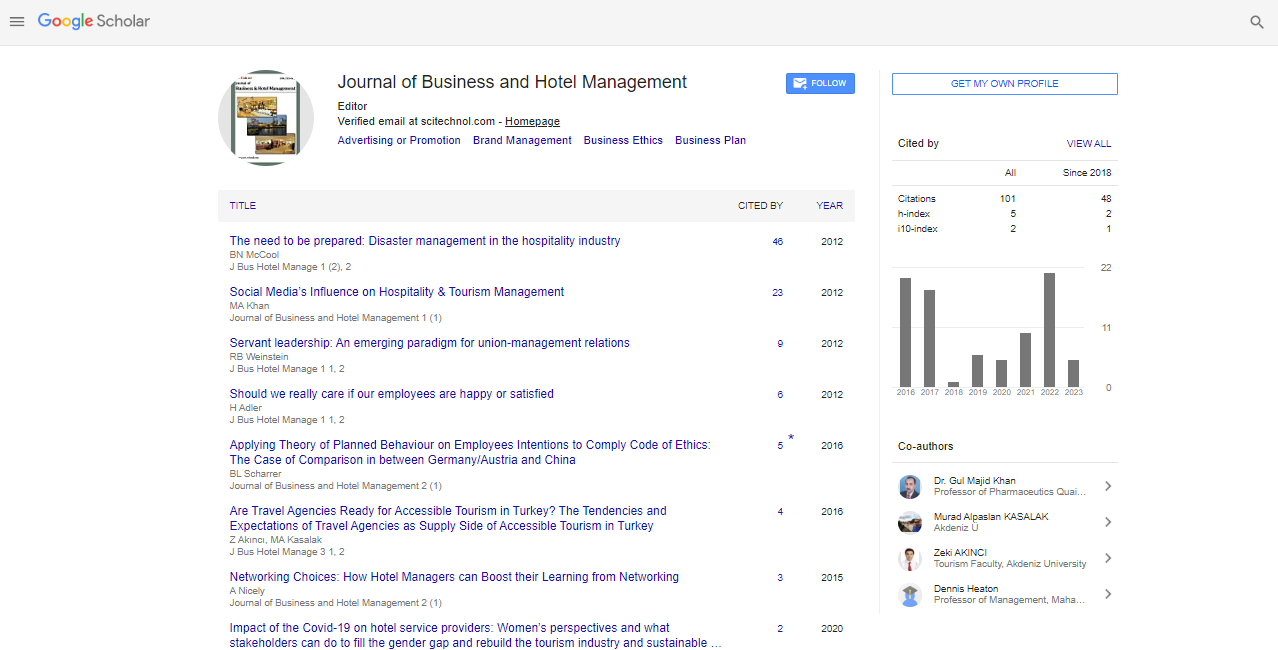Editorial, J Bus Hotel Manage Vol: 11 Issue: 1
Revenue Management Techniques in Hotel Industry
Tarun Bhatia*
Department of Financial Management, Amity University
- *Corresponding Author:
- Tarun Bhatia
Department of Financial Management, Amity University
E-mail: tbhatia@amity.edu.in
Received: 01-March-2025, Manuscript No. JBHM-25-169401; Editor assigned: 4-March-2025, Pre-QC No. JBHM-25-169401 (PQ); Reviewed: 20-March-2025, QC No. JBHM-25-169401; Revised: 26-March-2025, Manuscript No. JBHM-25- 169401 (R); Published: 30-March-2025, DOI: 10.4172/2324-9129.1000168
Citation: Tarun B (2025) Revenue Management Techniques in Hotel Industry. J Bus Hotel Manage 11:168
Introduction
Revenue management is a critical function in hotel operations, involving forecasting, pricing, and inventory control. Indian hotels are increasingly using data-driven tools to maximize revenue and occupancy rates [1].
Dynamic Pricing Models
Hotels are adopting flexible pricing strategies based on seasonality, demand patterns, and competition. Revenue management systems use AI and historical data to set room rates in real time [2][3]. Events, holidays, and peak seasons significantly influence pricing [4].
Channel Management and Direct Bookings
With OTA commissions reducing profits, hotels are encouraging direct bookings through official websites. Integrating multiple sales channels while managing availability and price consistency is vital for revenue optimization [5].
References
- Sinha R (2020) Revenue Strategy in Hotels. Financial Hospitality India 4: 23-30.
- Ghosh A (2021) Dynamic Hotel Pricing. Tourism Finance Journal 6: 44-52.
- Pandey M (2019) Use of AI in Pricing. AI in Indian Hospitality 5: 33-41.
- Das T (2023) Seasonality in Revenue. Tourism Trends Review 7: 19-28.
- Saxena N (2022) Managing Booking Channels. Revenue Management India 3: 14-22.
 Spanish
Spanish  Chinese
Chinese  Russian
Russian  German
German  French
French  Japanese
Japanese  Portuguese
Portuguese  Hindi
Hindi 